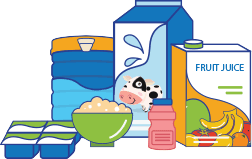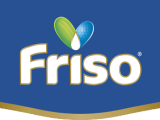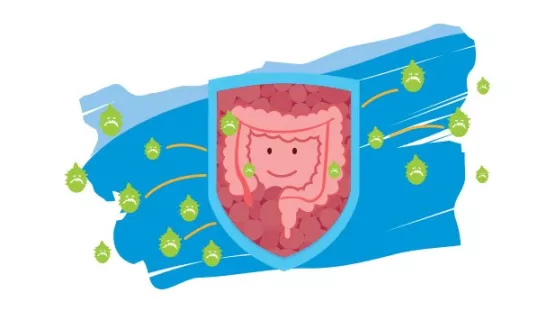
Learn about probiotics
What are probiotics
Probiotics are live bacteria and yeasts that are beneficial to our health because they keep our digestive system healthy. Probiotics compete with harmful bacteria for nutrients, and as a result, prevents them from multiplying and causing diseases. This will help to create a balanced environment for your digestive system.
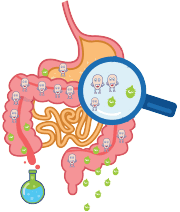
There are about 10,000 billion beneficial and harmful bacteria in children's intestines.
- Probiotics are beneficial bacteria in the intestines
- They compete with harmful bacteria to create a bacterially balanced environment
- These 2 types of bacteria live in a symbiotic manner in our body
- With our body weakened, our immunity impaired and unhygenic eating habits, harmful bacteria can attack us
Benefits of probiotics
With the different kinds of bacteria living within our digestive tracts, certain illnesses can knock the balance between the good and bad bacteria off, and probiotics can help to restore that balance. Having probiotics in your child’s digestive tract also supports the immune system, decreasing the amount of bad bacteria that could cause infection or inflammation.
Research has also shown that probiotics can be helpful for children with irritable bowel syndrome, various intestinal symptoms including abdominal pain, cramps, constipation, bloating and diarrhoea. Additional benefits include:
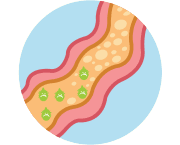
Providing antibacterial effects
Compete with harmful bacteria for nutrition.
Create an acidic environment in the intestines to eliminate pathogenic organisms.
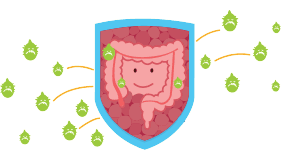
Protecting the intestinal mucosa
Prevent the spread of harmful bacteria with a layer of mucus particles.
Create a strong barrier with mucous cells against harmful bacteria.
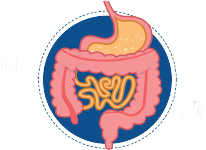
Regulating immunity
Distribute anti-inflammatory particles to the intestines.
Improve intestinal microbiota.

Balancing intestinal bacteria
Regulate metabolism.
Decrease lactose intolerance to prevent flatulence and indigestion.
Sources of probiotics
Probiotics are naturally found in our bodies, and can be found in foods, or taken as supplements to aid digestion. There are two main categories of probiotic foods: dairy and fermented foods. Some foods that are rich in probiotics include:
- Yoghurt
- Cheese
- Pickles
- Miso
- Green peas
- Fermented soybeans
- Fermented and unfermented milk
- Formulas fortified with probiotics
